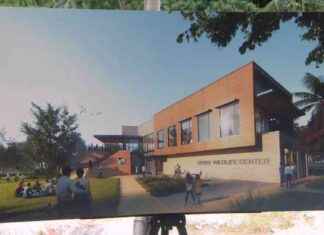In full mourning for the massacres of 19 children and two teachers in Uvalde (Texas) and ten other people in Buffalo (New York), the Supreme Court of the United States has just annulled the law of the latter state that made the granting of a license to carry weapons outside the home to the existence of a “just cause” linked to a danger to one’s life.
The High Court adopted the decision with the favorable votes of the six magistrates of the conservative majority, against the negative votes of the three considered progressive.
The sentence expands the right to bear arms through an interpretation contrary to limiting the second amendment of the constitution that recognizes the prerogative.
The lawsuit, backed by the National Rifle Association, was brought by two men who were denied licenses in New York. They alleged that the state “makes it virtually impossible for the ordinary law-abiding citizen to obtain a gun permit.”
The overturned regulation, known as the Sullivan Act, dated from 1911. Back then, “on the avenues of the east and west sides of the city, revolvers were sold like hot cakes and almost as cheap,” according to a description of The New York Times in August of that same year.
The text, substantially amended in 1913, imposed the requirement of “adequate cause”, beyond having no criminal record, to be able to carry concealed firearms in public. Applicants for a license had to convince the authorities that they had a very concrete and real self-defense need, not merely a hypothetical or speculative one.
Now, when, as a result of the latest mass shootings, Congress is preparing to carry out certain restrictions on access to weapons, agreed between the two parties, the Supreme Court considers that the limitation of the state of New York violates the second amendment.
According to the resolution’s rapporteur, Justice Clarence Thomas, the famous constitutional precept (to “keep and bear arms”) protects “the right of an individual to carry a firearm for self-defense outside the home.”
Thomas argued that there is “no other constitutional right that an individual can exercise only after demonstrating to government officials some special need.”
So the New York restriction is unconstitutional because “it prevents law-abiding citizens with ordinary self-defense needs from exercising their right to keep and bear arms,” ??added the drafter of the sentence with the support of his companions of the conservative wing .
The ruling of the highest US judicial authority has very wide repercussions. It not only affects the state of New York but also those of California, Hawaii, Maryland, Massachusetts, New Jersey and Rhode Island, all of them with similar laws – according to the briefs presented to the court – although the exact impact of the sentence on those other legislations. The verdict also comes to dissuade as many chambers of other states are preparing -in reaction to the wave of violence in the country- laws comparable to the one now annulled.
The progressive judge Stephen Breyer, one of the three dissidents, wrote a dissenting opinion in which he recalled the enormous number of victims caused by armed violence in the US: “So far this year alone, 277 shootings have been reported. massive, an average of more than one per day”,
New York Governor Kathy Hochul, for her part, said the decision “is not only reckless but reprehensible.” And “it’s not what New Yorkers want,”
The effect of the Supreme Court’s decision may have a greater scope, but in the opposite direction, than that of the restrictive measures agreed between Democrats and Republicans in Congress, already ready to be approved except for surprises. It’s about toughening background checks for younger gun buyers; to require more buyers to carry out such checks, and to increase penalties on arms dealers. The legislative package also contemplates the financing of school safety and mental health initiatives in states and communities.
One step forward, two steps back








